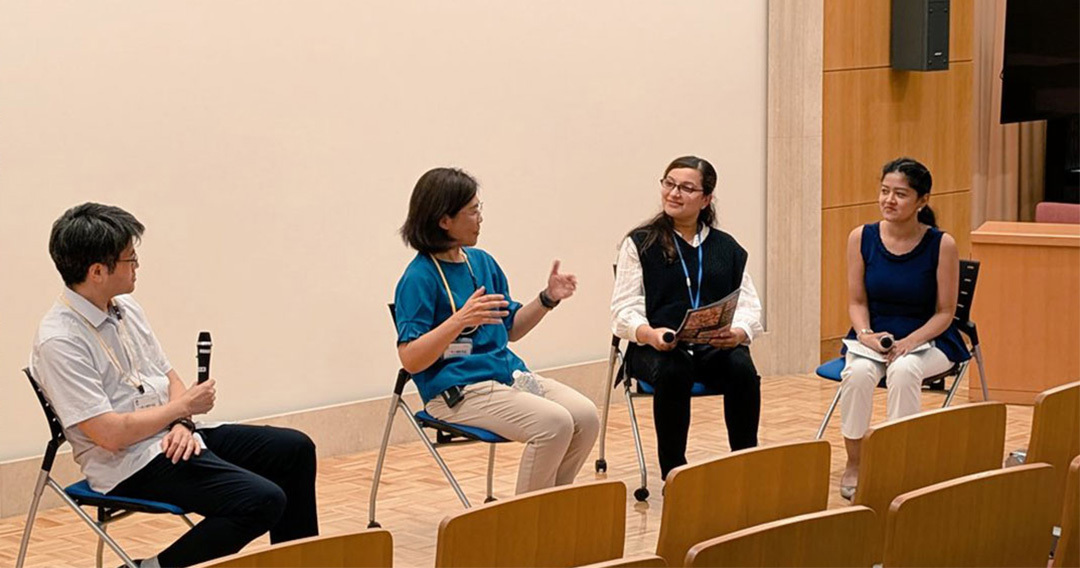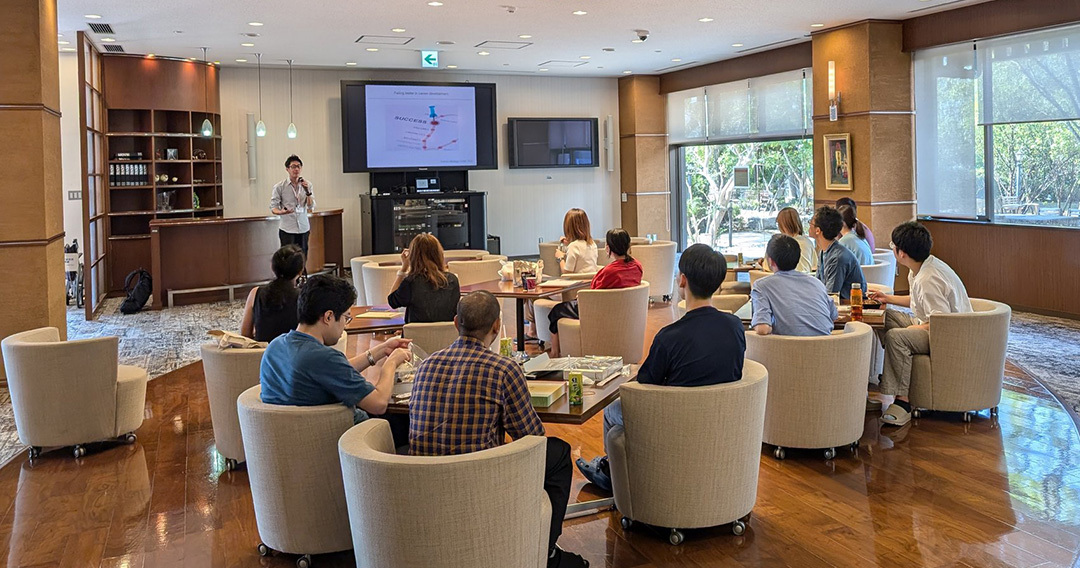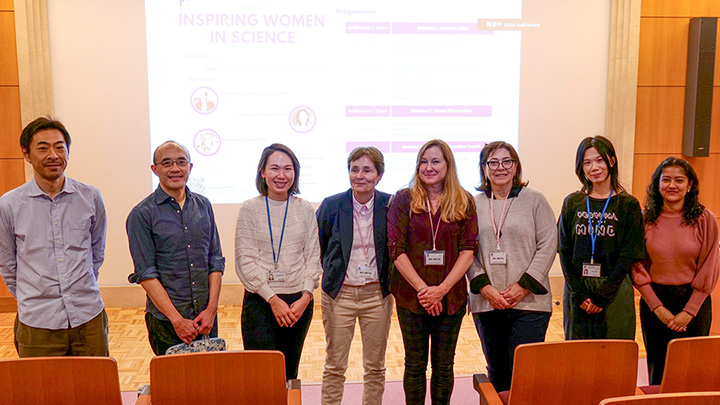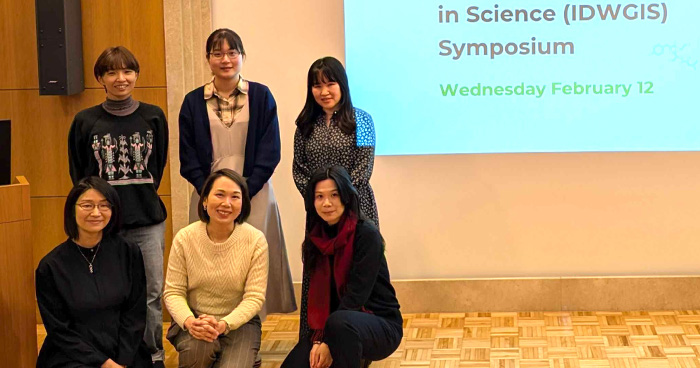Navigating Failures and Transitions: Key Lessons from the BDR Launchpad Series
Nov. 15, 2024
Two recent events held as part of the BDR Launchpad series provided young researchers at RIKEN BDR with valuable insights into the challenges and rewards of pursuing a scientific career. Featuring talks by Dr. Miho Matakatsu, CEO of VectorBuilder Co. Japan, and Professor Fumio Motegi from Hokkaido University, the events focused on the importance of resilience, adaptability, and learning from failure, while exploring career paths that span both academia and industry.
In the Launchpad session on September 26, held at the Auditorium of the BDR Kobe Campus, Dr. Miho Matakatsu—a former member of Dr. Shigeo Hayashi’s lab when he was at the National Institute of Genetics decades ago—shared her emotional journey of transitioning from academia to the biotech industry. She spoke candidly about the deep sense of loss she initially felt upon leaving academia after spending more than two decades in that arena. "I was so sad," she revealed, describing how it felt like leaving behind not just a job, but an identity. However, as time passed, she found new fulfillment in her role as the CEO of a biotech company, where she now manages multiple projects and makes a broader impact than she ever imagined.

CEO of VectorBuilder Co. Japan, Sweksha Lohani, postdoctoral researcher at RIKEN BDR, and Bipasha Dey, research scientist at RIKEN BDR
"In academia, you might complete two or three research projects," she said, "but in my current role, I oversee numerous successful projects simultaneously." Her journey underscores the importance of being open to career changes and adapting to new environments, even when they feel uncertain.
According to Dr. Bipasha Dey, one of the event organizers, this session had the largest turnout from BDR members since the series began in April 2024. "Ever since starting BDR Launchpad, we received feedback to include sessions on non-academic careers for researchers. There are many ways of doing science, and both academia and industry provide exciting opportunities to contribute to science," she explained.
In a separate session on October 1, Prof. Motegi, who was once a postdoc
in Dr. Asako Sugimoto’s lab at the former RIKEN Center for
Developmental Biology, focused his talk on the role of obstacles and
failures in scientific success—a topic rarely discussed openly. He
shared his own experiences, including a key career decision during his
second postdoc in the U.S. Both he and his wife, who is also a
researcher, had just arrived to take up their posts at UC San Diego when
his wife’s supervisor unexpectedly announced a move to the NIH,
throwing their carefully laid plans into disarray. Instead of seeing it
as a setback, Prof. Motegi adapted and chose to remain at UC San Diego
working on various projects and assisting others while searching for his
own path.

He also revealed that 40% of his research projects were unsuccessful, illustrating that failure is not only common but essential to learning and growth. His story emphasized the need for perseverance and flexibility, even when facing unexpected challenges.
Dr. Sameer Thukral, another event organizer, emphasized the significance of this. "There is a prevalence to believe that PIs who made it never went through rejections. Talking about failure makes it acceptable and an inevitable part of everyone's journey," Dr. Thukral noted.
These talks were part of the BDR Launchpad series, a grassroots initiative founded by postdocs Dr. Bipasha Dey and Dr. Sameer Thukral. BDR Launchpad is supported by BDR’s Diversity Working Group and the initiative explores the "hidden curriculum" of science, covering topics like grant writing, emotional resilience, and career development. The series offers a platform for young researchers to engage with experienced scientists and gain practical career advice.






